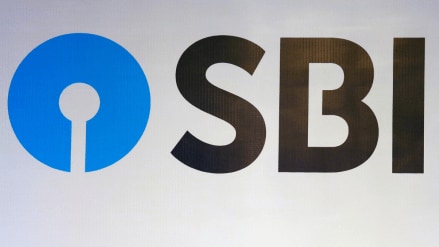The Reserve Bank of India’s draft guidelines on project financing, if implemented, could lead to rise in interest cost for infrastructure companies. Lenders, on their part, are quite clear. Banks like State Bank of India and Canara Bank have clearly said that the additional cost will be passed on.
Said SBI Chairman Dinesh Khara, referring to the draft guidelines which said that lenders must build 5% of provisions on outstanding standard under-construction projects, “The fact remains that if it all guidelines become reality, maybe the pricing of such loans will also be revisited.”
Added K Satyanarayana Raju, MD & CEO, Canara Bank, “When the RBI hiked risk weight on NBFCs, we partly shifted the hike on the NBFCs, but 95% of customers are intact with us. In fact, that 95% of NBFCs have again applied for loan at higher rate of interest,” he said, adding that while there may be a little impact on margin of builders, it will not be on the banks. Builders, too, may subsequently pass on higher rates to end consumers. “
Industry leaders like L&T’s president & CFO R Shankar Raman said that when officials from the company met with RBI Governor Shaktikanta Das a few weeks back, they sensed that “some tightening” in regulatory norms was on the horizon.
He said the RBI has realised one side of the core problem with infrastructure projects. However, he feels that once the new government takes charge, it will address the second side.
“Promoting a selection of the least cost option for the project actually makes it very risky because somebody may not have the technical competence to bid for a certain project, but because he’s able to give a very compelling price, he becomes the chosen one,” he said.
According to Arun Maheshwari, joint managing director and CEO of JSW Infrastructure, the RBI’s draft guidelines has long-term benefits, but it may lead to short-term impact. The guidelines may impact investment flows, and lead to project delays in the short-term, but will bring a high-level “sanity and rationale” for long-term stability of the sector.
“It would also bring in long-term benefits if the projects are conceived with current policy continuity assumptions and completed within the timeframe,” he added.
While the provisions can be made gradually in phases till FY27 and once the project enters the operational phase, the provisions can be reduced to 2.5% of the funded loans. It can be further reduced to 1% of the funded outstanding provided that the project has achieved certain viability metrics.
Khara said SBI will reach out to the RBI with the bank’s feedback on the proposed norms, adding that even if the regulator moves ahead with 5% provisioning requirement, the bank would able to absorb the impact without disruption.
“I would only like to say that we have made some broad assessments, and based on that, even the incremental provisions required to be done will not be very significant for us. We will be able to absorb those provisions without much disruption,” he said. SBI’s infrastructure loans stood at Rs 3.94 trillion as on March 31, 2024.
Raju said prima facie it appears that the RBI is sensitising banking industry that it will have to move to expected credit loss (ECL) regime gradually. At present, all banks are doing very well, he said, and this is the right time to keep sufficient provisions for stronger balance sheet.
Punjab National Bank MD, CEO Atul Goel, meanwhile, said the guidelines are essentially to bring more discipline in the field of project financing and timely completion of projects.
“From the regulator’s point of view, if the risk in a particular project is there, so banks should be required to make higher provisions. Whether 5 % (provision) is reasonable or not that we will discuss and we will submit our comments to the regulator. We will clarify from the regulator whether these guidelines apply to small loan,” he said.
S Shankar Raman, CFO, L&T
“Promoting a selection of the least cost option for the project actually makes it very risky because somebody may not have the technical competence to bid for a certain project, but because he’s able to give a very compelling price, he becomes the chosen one,” he said.
SBI Chairman Dinesh Khara
“We will be reaching out to RBI with our views on the proposal. Let us wait for final decision by the RBI. Nevertheless, I would only like to say that we have made some broad assesments, and based on that, even the incremental provisions required to be done will not be very signficant for us. We will be able to absorb those provisons without much disruption. Also, the fact remains that if it all guidelines become reality, maybe the pricing of such loans will also be revisited.”
